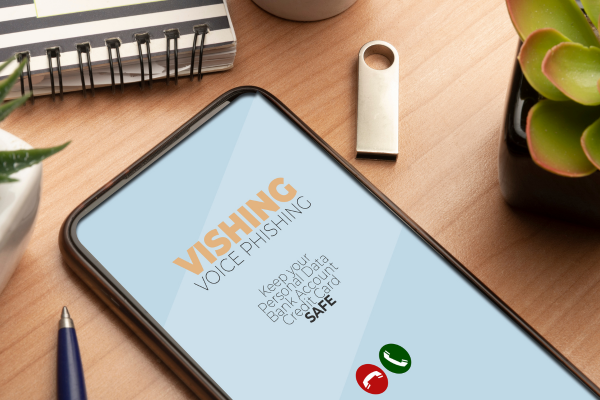
Vishing Attack:
The Alarming Role of AI in Enhancing Vishing Scams
In today’s digitally interconnected world, the threats of vishing and phishing are ever-present and evolving.
“Vishing” is a portmanteau of “voice” and “phishing.” It refers to the practice of using telephone services (such as mobile or landline phone calls, voicemail, or voice-over IP) to deceive individuals into revealing sensitive personal or business information, such as bank details, credit card numbers, account passwords, or other valuable data.
Vishing operates similarly to phishing attacks that occur via email or other messaging systems, but it involves explicitly voice-based communication. Scammers may use a variety of tactics to seem legitimate, such as employing fake caller IDs posing as bank officials, government agents, or representatives of other trustworthy entities.
They often create a sense of urgency or fear, prompting the victim to act quickly without thinking critically, such as claiming that the victim’s bank account has been compromised or that immediate payment is required to prevent a service from being terminated.
Protecting against vishing typically involves being skeptical of unsolicited phone calls asking for personal or business information, verifying the caller’s identity through independent means, and being aware that legitimate organizations usually do not ask for sensitive information over the phone.

Voice Deception Redefined
AI-driven vishing and smishing schemes are on the rise. Vishing, which focuses on phishing through voicemail, has developed from SMS-based smishing tactics. In these vishing schemes, perpetrators utilize actual recorded voice samples from company executives, leaving voicemails with these pre-recorded messages to deceive recipients.
Malicious individuals utilize sophisticated phishing kits and AI resources to execute highly successful and widespread email, smishing, and vishing operations. Assisted by the expansion of phishing-as-a-service, Attacks in the Middle (AitM) have empowered these threat actors to circumvent established security measures, such as multi-factor authentication.

Always Be on Your Guard
It is crucial to remain vigilant against these deceptive practices where fraudsters impersonate legitimate entities to steal sensitive information. Always approach unsolicited communications with caution, whether they come through email, text, or phone calls. Verify the identity of the sender or caller through independent means before disclosing any personal information. Remember, reputable organizations will not ask for your private details or financial information unexpectedly or pressure you to act swiftly. Keep your personal data secure by staying informed about the latest security practices and by educating those around you on the dangers of vishing and phishing scams. Your awareness and proactive measures are the frontline defense in safeguarding your personal information against these insidious threats.
For more information, check the following resources
5 Lessons From The Las Vegas Hacks – Anderson Tech
Scammers are using AI-generated voice clones, the FTC warns: NPR
AI tools help attackers develop sophisticated phishing campaigns – Help Net Security
